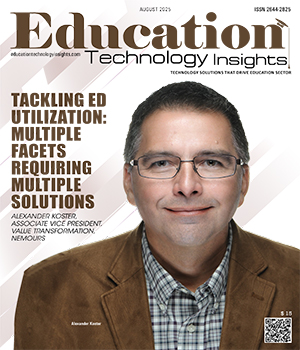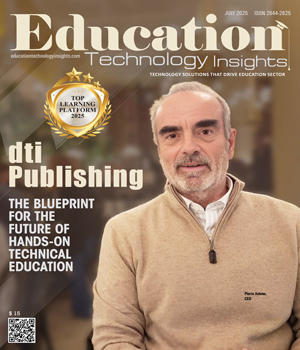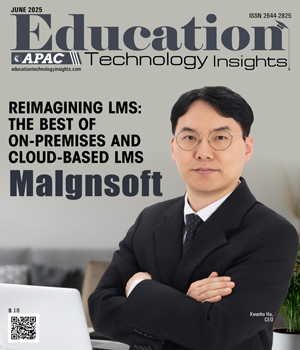THANK YOU FOR SUBSCRIBING
Be first to read the latest tech news, Industry Leader's Insights, and CIO interviews of medium and large enterprises exclusively from Education Technology Insights
Digital Education: From Content to Connections
Dr. W. Allen Richman, Interim Dean of Planning, Assessment and Institutional Research, Prince George’s Community College
 Dr. W. Allen Richman, Interim Dean of Planning, Assessment and Institutional Research, Prince George’s Community College
Dr. W. Allen Richman, Interim Dean of Planning, Assessment and Institutional Research, Prince George’s Community CollegeDo Away with Stagnant Data
The biggest obstacle colleges and universities face in implementing a comprehensive assessment process to track learning outcomes, is a long history of having data that wasn’t readily shared. Faculty, and others who work in higher education, have operated with a significant amount of autonomy. Thus, metrics aimed at sharing performance are not a regular part of the higher education culture. Having been faculty, and having been introduced to the assessment process a decade ago, I know firsthand how scary it is to be completely transparent about the performance of your students. But if assessment is done correctly, the sharing of data is never about catching a “bad” teacher or “bad” practice, it is always about reflection and improvement. After the initial plunge into the deep end of sharing the performance of my classroom, I quickly came to realize, as most faculty and higher education employees do, that there are numerous successes the data demonstrate, but there are always a small number of problems as well. Once we all start sharing, we all suffer from lots of successes and a few challenges. Once discussing your classroom challenges becomes second nature and comfortable, it is no longer a scary endeavor. Institutions that have lived through this culture change have embraced assessment. Those institutions still working to embrace assessment—need to continue to forge ahead, holding discussions on performance and reviewing the data, because eventually they will get to where it isn’t so scary.
“If assessment is done correctly, the sharing of data is never about catching a “bad” teacher or “bad” practice, it is always about reflection and improvement”
Lack of Practical Exposure
Colleges and Universities have to continue to focus on the skills that lead to a well-rounded citizen, who is capable of operating with less guidance in the workplace. Employers are often noting that graduates know the material, but struggle to apply it, collaborate on projects, and then communicate the outcomes of various projects. The focus right now for most academic programs is to use language in the learning outcomes that require students to apply, collaborate, and communicate. But, it is much easier to write an outcome with these words, than it is to figure out how to ensure students obtain these skills, as they move through their academic program. This can be especially difficult for community college students who are often working multiple jobs, and therefore don’t have the time to collaborate on projects with peers. It may be that what we see is the leveraging of the technology to develop asynchronous collaboration, so that students can collaborate while not having to be in the same place at the same time (e.g., editing a google document). The other difficulty is that most classroom time is spent focused on the content, and thus there is not enough time for 20-30 students to present materials. Again, the technology could be leveraged to record “digital presentations” which show the student’s communication skills, and/or the communication of a collaborative group.
Check Out:
Overview | CIOReview
Crunchbase | CIOReview
Glassdoor | CIOReview
Owler | CIOReview
Zoominfo | CIOReview
CIOReview Clients: Nous Systems
Read Also
Navigating the Future of Higher Education IT with AI
Embracing AI to Transform Online Learning
Building Inclusive Digital Ecosystems Where Students Thrive
Cyber Preparedness: Protecting Students from Digital Dangers
Redefining Student Success in the Digital Age
Leading Inclusive and Smarter Learning

I agree We use cookies on this website to enhance your user experience. By clicking any link on this page you are giving your consent for us to set cookies. More info























